My sister is pregnant, and she has a blog post request! How exciting is that?! She has asked me to write a post discussing the top five things that a pregnant mother should know about breastfeeding.
It is always quite the balancing act when speaking with pregnant mamas. How much information do you provide? Which pieces of information will actually sink in and be relevant when a little baby is still happily inside its mama’s tummy? Should we really discuss potential difficulties or simply go with the positive affirmations and self-belief concept? So I’ve decided to focus on only the first few hours and days after birth. Have you imagined your first breastfeed? Imagine it! It will be beautiful.
My Top Five Tips
1. The breast crawl
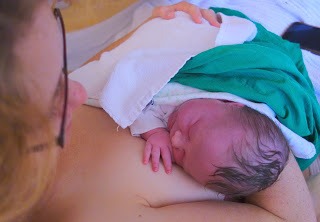
Immediately after birth, babies are capable of a ‘breast crawl’. They use their surprisingly strong little feet and legs to push their way up to your breast, and then bob their little head around until they land on your breast, latching on themselves to your nipple entirely unassisted. It is incredible to watch! The only thing that would make me consider a third baby is the chance to try a breast-crawl after birth — babies are such incredible things! Allow your baby to have uninterrupted skin-to-skin time with you post-birth (no weighing, measuring, bathing, etc), and give it a try! There is a lot of in-depth information on the benefits and importance of allowing babies to attempt a breast crawl here. (“Of 17 babies kept in the Breast Crawl position and kept in uninterrupted skin-to-skin contact for 1 hour, 16 attached to the breast correctly. Fifteen babies in the other group were separated after about 20 minutes for routine measuring and weighing procedures. After an interval of approximately 20 minutes, they were returned to the mother. Only seven babies in this group attached correctly. These findings are crucial because the early suckling pattern is of prognostic value for the duration and success of breastfeeding.” Reference)
2. The interval obsession
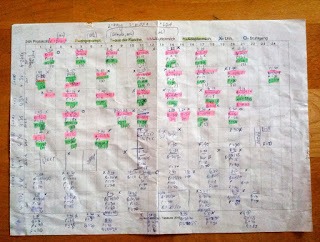
my baby’s output… UGH. DON’T DO IT!
Watch your baby, not the clock! If one of the nurses / midwives / paediatricians / gynaecologists start suggesting that you wait 1.5/2/3/4 hours between feeds, tell them where to go. If someone tells you to feed for 10/15/20/30/40/60 minutes on each breast, tell them where to go. There is NO evidence of digestive issues, there is NO evidence of blood sugar issues, there is NO evidence of ANY problem whatsoever in following your baby’s cues and feeding them when they want, for as long as they want. There is ample evidence of the many benefits that come from feeding your baby on demand, particularly in the first six weeks, as your milk supply establishes itself. If you start getting doubts, ask to speak with an Internationally Board Certified Lactation Consultant (IBCLC) and don’t trust anyone else’s opinions. Really. That being said, be prepared to sit on the couch with your boobs out and doing nothing else whatsoever for six weeks — get some good movies and some awful TV ready to go, and let other people care for you during that time.
3. Weight-loss
Your baby will almost always lose weight after birth, and this is normal. Once your baby loses 7-10% of their weight, only then should you consider supplementation, and only with the clear advice and support of an IBCLC. Not if your baby hasn’t fed for a while, not if your baby is crying a lot, and don’t even get me started on those hospitals that give babies formula or glucose water (!) without asking the mother first… Remember to look at more than just the chart when it comes to your baby’s weight loss.
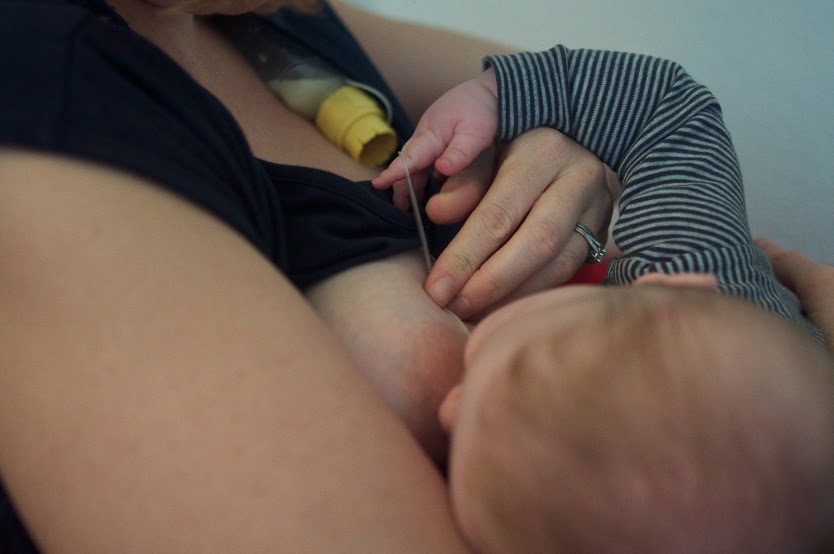
4. Supplementation
If you find yourself in the situation where you need to supplement, know that supplementation isn’t so much about the what, as it is about the how. Yes, there are many options for supplementation — The WHO states that a mother’s expressed milk is the best option, followed by milk from a healthy donor, followed by formula. The most important thing at this stage, though, if you plan to continue breastfeeding successfully, is to avoid giving your baby a bottle. Bottles come with a reasonably high risk that your baby will quickly prefer that to the breast, which requires patience and constant effort to obtain milk. You can give additional milk using a cup (which, I have to say, is one of the cutest things ever! Watching your newborn’s tongue lap up the milk like a little kitten… squee!), a spoon, a dropper, a syringe while feeding at the breast simultaneously, a tube via finger-feeding, or via supplemental nursing system.
5. Sore nipples
Of the hundreds of women I have spoken with and helped with breastfeeding issues, I have known only two that claim that they didn’t have sore nipples at all. I believe that sore nipples in the early weeks are part of the breastfeeding process… but there is a limit. If your nipples are raw and bleeding, with open sores and blisters, that’s not okay. If you are dreading every feed because of the toe-curling, swear-inducing agony that it will bring, that’s not okay. I know this now. Then it is time to see an IBCLC. If everyone is telling you that the latch looks great and things are great, but you are in agony, it’s time to do some more hunting until you find someone who will listen and will help you fix the problem. There are many things that could be causing it, some of which can cause long-term breastfeeding and milk-supply issues, but these can be prevented if you get help early enough.
Before I leave you with that, I want to point you in the direction of a perfectly beautiful blog post from an IBCLC I admire and follow, regarding the first time you breastfeed. I wish I had written it, it is wonderful!
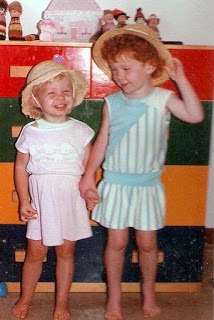
And, my beautiful sister, most importantly, know that I am here for you always, through it all. Though I might be literally a planet away and unable to deliver you lasagne, I am there for you always along this crazy journey you are about to embark upon. And hey, being a planet away means that you don’t have to worry if you want to call me at 3am! I love you, and I can’t wait to see the beautiful girl that you are holding so closely inside of you. <3




